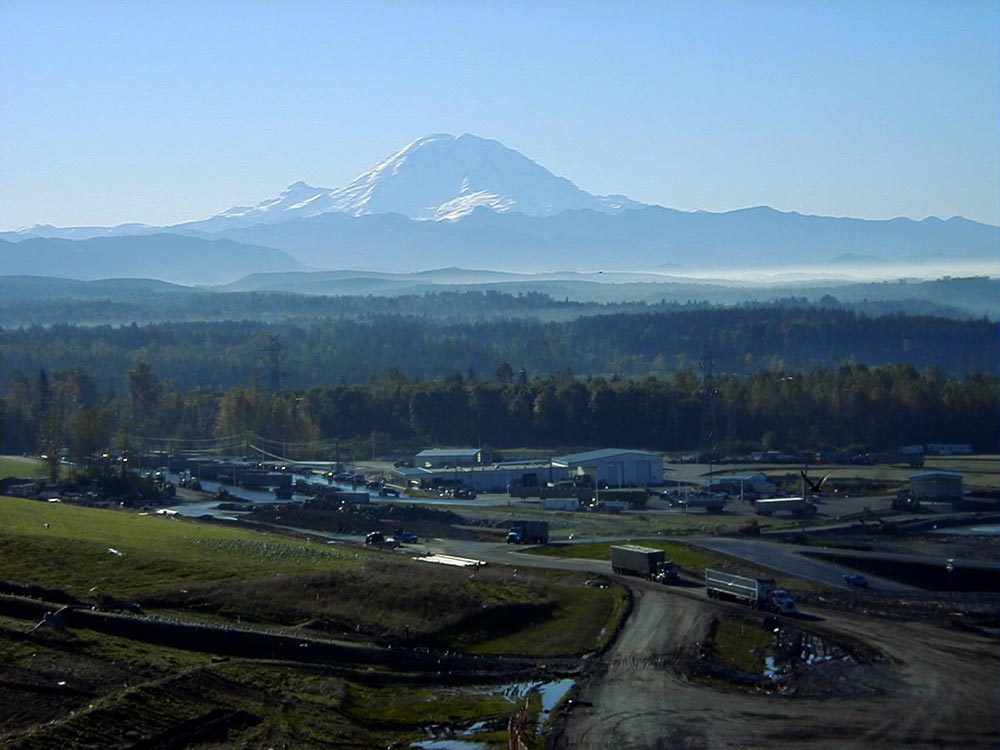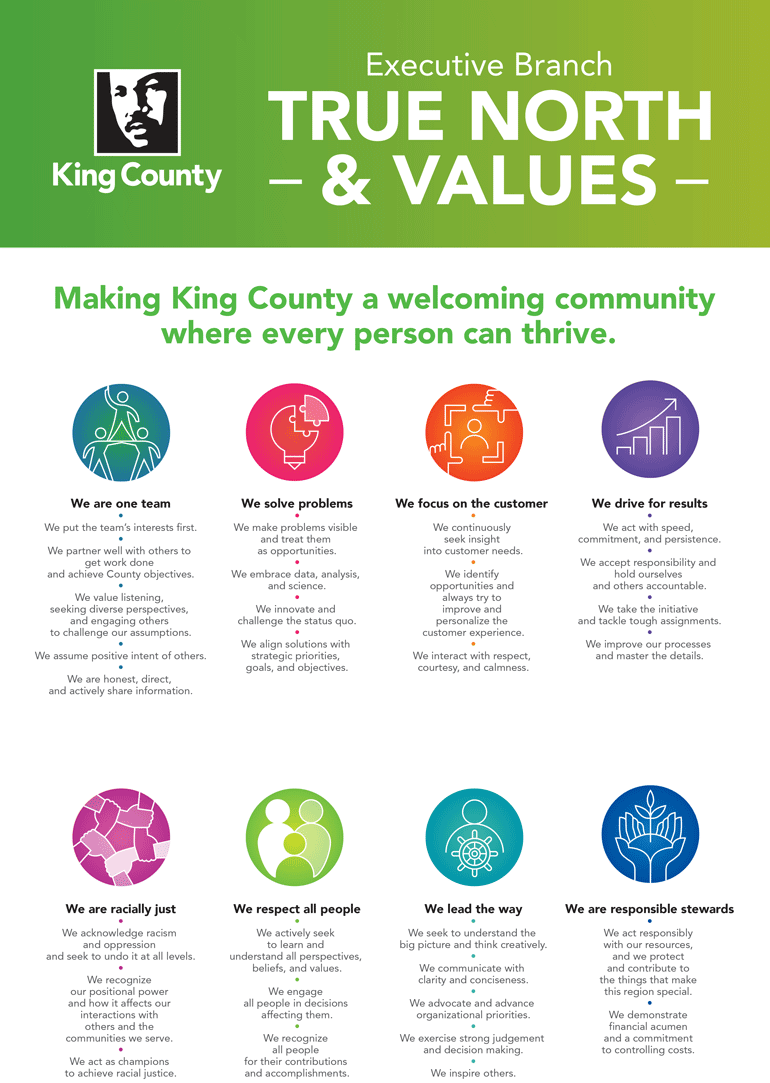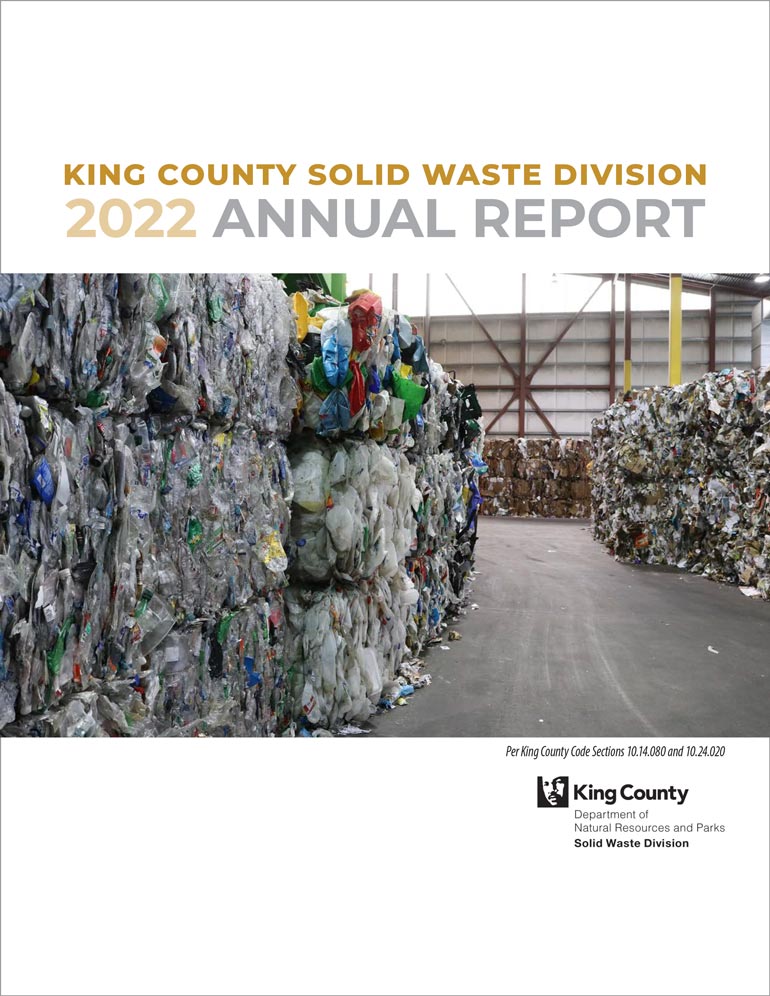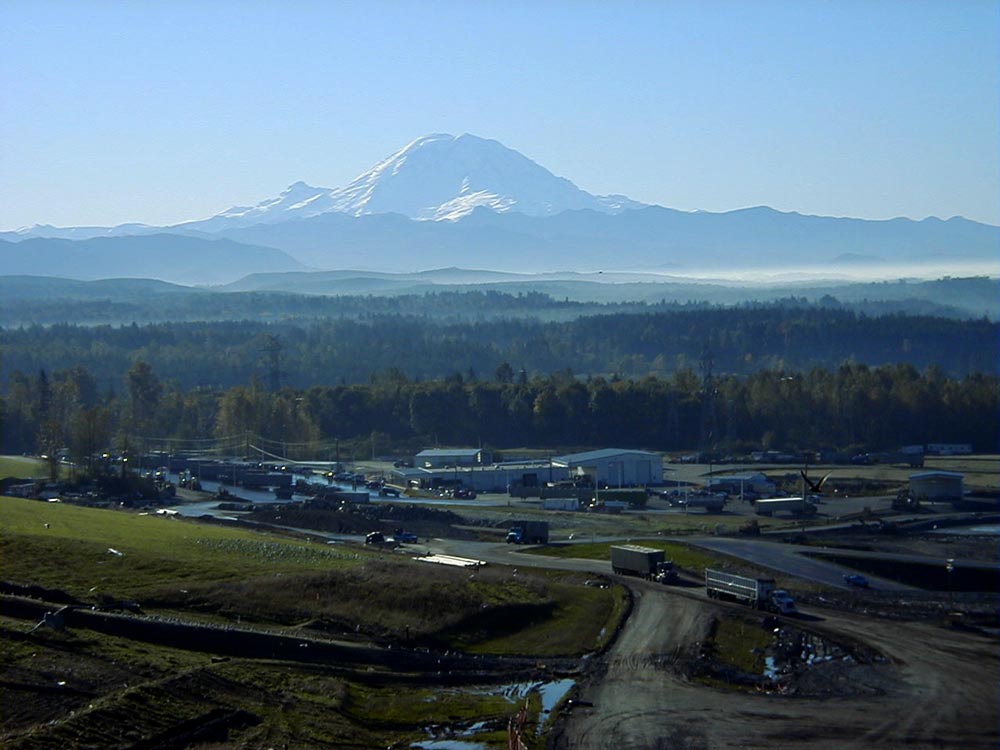About Solid Waste Division
Vision
We achieve zero waste of resources and enhance the environment through collaboration and innovation.
Mission
We bring the best people together to deliver value to our customers and stakeholders and continuously improve waste prevention, resource recovery, and waste disposal.
Our values
At the Solid Waste Division, our work is guided by King County's True North and values. Our True North is what we aspire to: Making King County a welcoming community where every person can thrive. These values define the way we act, what's important to us, and our expectations for ourselves and one another.
The Solid Waste Division (SWD) offers a number of innovative programs and services focused waste prevention, resource recovery, and waste disposal
SWD provides garbage transfer and disposal, and recycling services for approximately 1.3 million residents and 660,000 employees in King County. The King County solid waste system serves a large unincorporated area and 37 of the 39 cities in King County – the cities of Seattle and Milton are not part of the King County system.
Collection
Collection of solid waste, recyclables and organics is provided primarily by private-sector collection companies. Two cities, Enumclaw and Skykomish, provide their own solid waste collection services. From the curb, solid waste is transported by the collector to the country’s transfer facilities, and recyclables and organics are transported to private-sector processors.
Transfer
To serve an area the size of King County, the division operates eight transfer stations and two drop boxes. In addition to receiving solid waste from curbside collection, the facilities accept solid waste from residential and non-residential self-haulers. In addition to garbage disposal, basic recycling services are available at no charge at most stations.
In 2014, the transfer facilities received 843,320 tons of garbage. At the transfer facilities, many small loads are combined into larger loads for transport to the county’s Cedar Hills Regional Landfill. The use of transfer stations lowers collection costs, reduces overall traffic and the associated air pollution, fuel consumption and road wear.




Disposal
The Cedar Hills Regional Landfill is the only active landfill in King County. It is located on a 920-acre site in rural King County. The landfill has been in operation since the 1960s, and is currently projected to reach capacity in 2031.
Waste prevention & recycling
SWD offers a number of waste prevention and recycling programs.
Closed landfills
The division also has custodial responsibility for nine closed landfills. Ongoing environmental monitoring of groundwater, surface water, wastewater, and landfill gas ensure that they are maintained in a state that is protective of human health and the environment.
Long-range planning
The Solid Waste Division is responsible for preparation of a Comprehensive Solid Waste Management Plan (Comp Plan) for the county’s solid waste system. The Comp Plan in currently under review.
More information about the division can be found in the latest Annual Report.


 Translate
Translate

